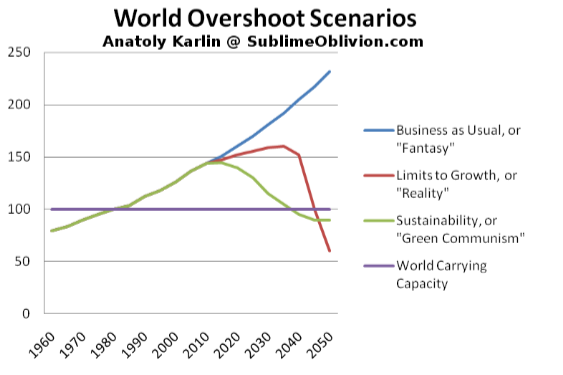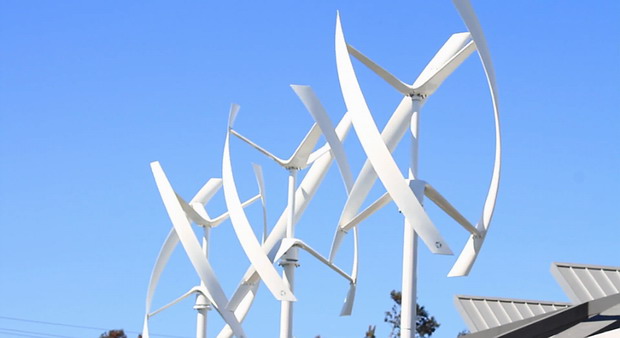Saving our planet, lifting people out of poverty, advancing economic growth… these are one and the same fight. We must connect the dots between climate change, water scarcity, energy shortages, global health, food security and women’s empowerment. Solutions to one problem must be solutions for all.
Ban Ki-moon
The 21 st century will be about food scarcity, not a lack of energy.
It amazes me how every discussion on sustainability and going green always seems
to center on energy and not the impending collapse of our food chain. I guess that’s
somewhat understandable as CO2 has had such a pronounced impact on the
environment while fuel and electric costs have skyrocketed. After all, it is the way
we consume energy and the fossil fuels we depend on that are central to the issues
we now face. It is also our focus on the challenges we are experiencing right at this
moment as a species that tends to draw our attention. Human beings have a
penchant for being preoccupied with immediate issues of self-interest while
neglecting the future impacts of trends they either do not see or fully understand. It
just seems to me that while everyone is focused on the source of our problems,
very few people are seemingly concerned or preparing for its gravest consequence.
At our current trajectory we will see the largest loss of life and reduction in human
population in history by, or around mid-century as a result of mass starvation.
That’s a pretty harsh statement that most people would find hard to believe.
Markets in most developed countries are stocked to the brim with meats, fish,
poultry, vegetables, grains, fruits, and assorted delicacies from every corner of the
globe. You can drive up to a fast food window and they hand you a hot prepared
meal, or pick up a (Smart) phone and magically someone delivers your meal or
groceries right to your door. How could we possibly be running out of food? It is
therefore hard to believe that the overwhelming odds for the cause of your demise
(If you are young enough) or that of your children will very likely be from
starvation or diseases that result from malnutrition.
This is not my opinion but an undeniable fact. We are facing an issue that will
severely affect every family, country, and region on the planet, not just the poor
and developing nations. Our food chain is currently in the early stages of collapse.
It is already a reality for the majority of our global community, with the exception
of those living in Europe, the U.S., the developed world, or having lots of money.
For those fortunate enough, acquiring food in its seemingly endless varieties and
preparations may be an after-thought, however that is not the case for much of our
population and those percentage are increasing daily.
There are a number of opinions on how this will all play out. Some experts feel we
can adjust and stabilize our current situation if we are proactive, while there are
other opinions and models that suggest our planet’s population carrying capacity
could be reduced by as much as 3/4 (approximately two billion people) by the
middle of this century. These are not the fear-based rants of “over-sensitive”, end-
of-the-world environmentalists, but computer models analyzing core data that
directly affects food production capacity and future production levels. We need to
pay close attention and start preparing for shortages.
To get a better handle on this, we need to look at all the issues involved. Outdated
farming and fishing practices are currently being pushed to their limit. Over-
harvesting, climate change, soil nutrition loss, and collapsing bee colonies are just
part of the problem. When you also consider pollution, aquifer depletion, bio-
diversity reduction, and habitat destruction we begin to see the threats to a system
already overwhelmed by an expanding population. For the first time in history, in
an effort to make up for recent short falls, India has had to import rice, [34] Russia has
stopped exporting wheat, [35] and China has leased farmland in more than a dozen
separate countries to make up for their own production deficits. [36]
Many of us may counter that we are producing more food at this time in history
than ever before, and they would be right. In addition, it is a said that we have
plenty of food and it is just a distribution problem made more difficult because of
fuel costs and the distance most food has to travel to get to consumers these days.
Again, if this opinion is based on supply and demand today, then it would be hard
to argue that point. However, we need to pay heed to the trend lines which indicate
that the food we take for granted will not be so available in the years to come.
Starvation may likely be the norm and not the exception. This is difficult to
imagine as most of us have never experienced real hunger, but it will surely be the
reality that our children will have to endure if we do not take decisive action and
soon.


